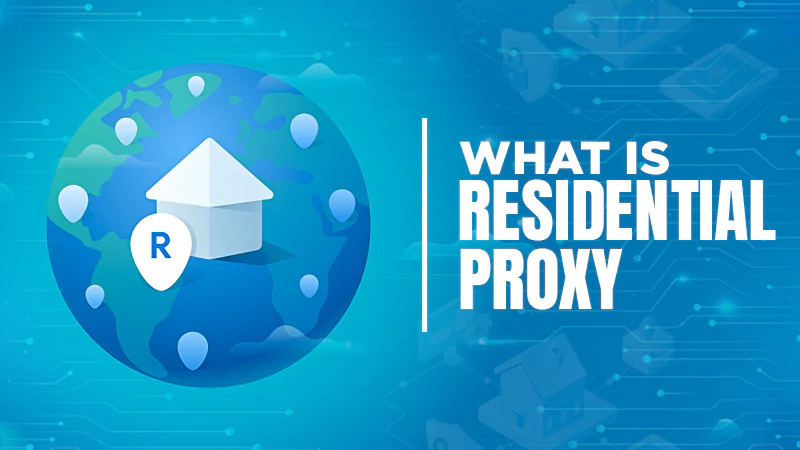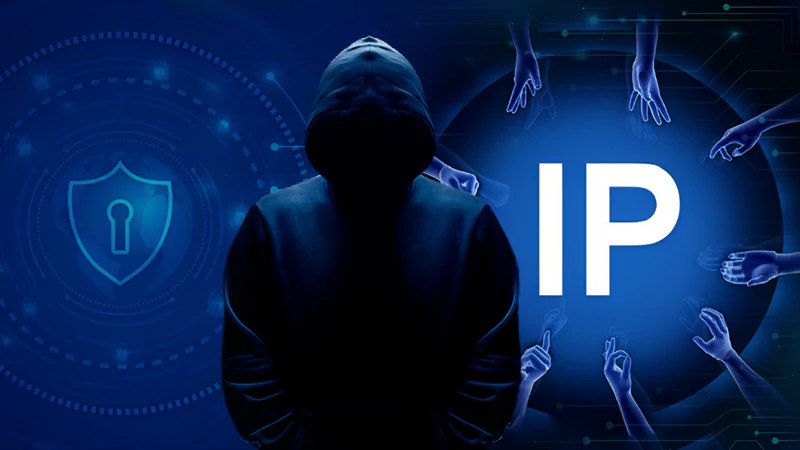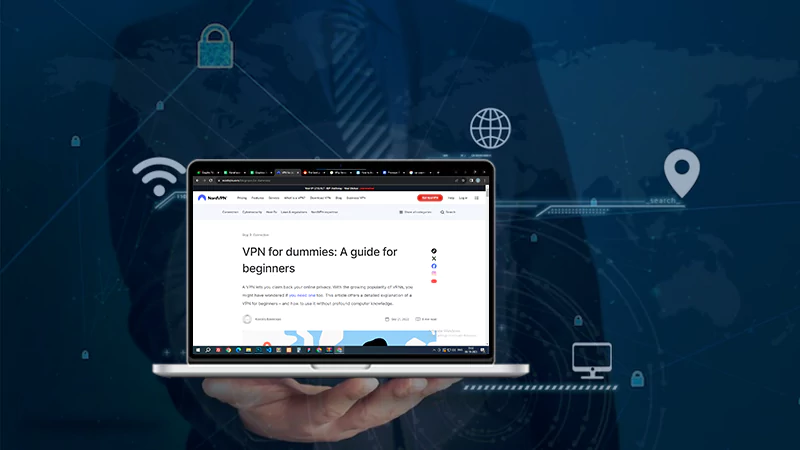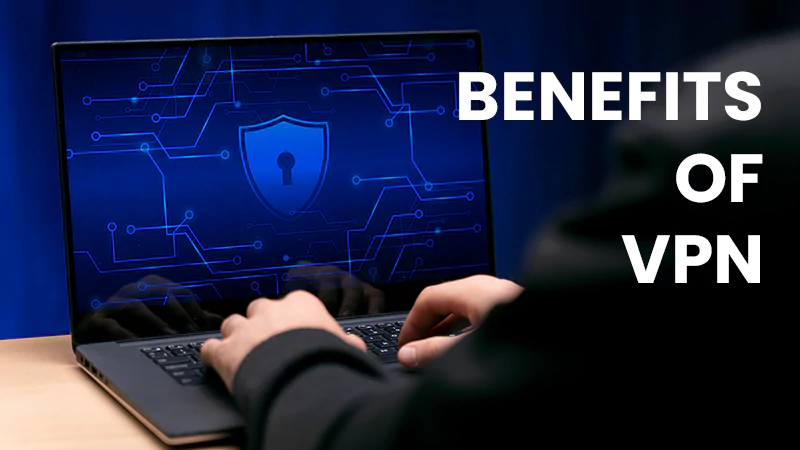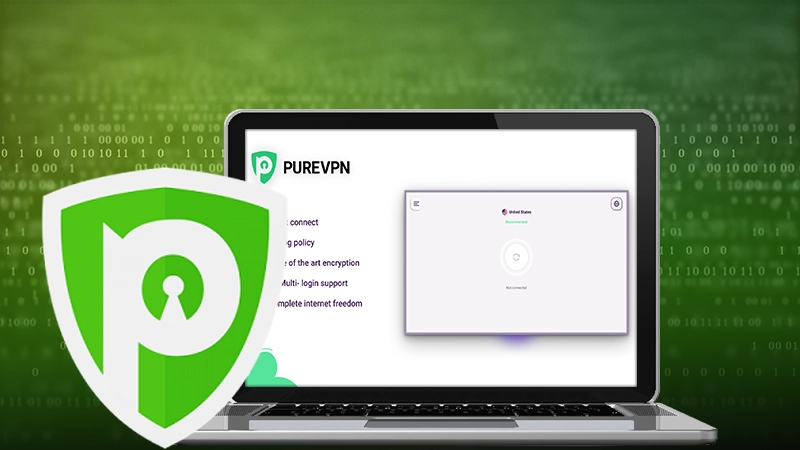Why A VPN Service Could Be Beneficial for Online Security?
If you’ve ever used a public Wi-Fi network, were concerned about how your internet service provider was using your data, or just wanted to watch Netflix series that aren’t available in your country, you should consider using a VPN.
A virtual private network (VPN) is a type of encrypted data transmission that replaces your real IP address with one from another location. This hides your true online identity and allows you to access the web safely, securely, and anonymously.
When you access the internet, a virtual private network (VPN) can give you two significant advantages at a basic level.
- By assisting in the protection of your personal information and other data when it’s being transmitted or received by your device, Encryption — which helps to safeguard your sensitive information as it travels from and to your device.
- By hiding your IP address, location, and search history, you can protect yourself from being tracked by websites, internet browsers, cable providers (ISPs), and other entities.
Using a full version VPN may assist you better & in a variety of ways as compared to when you set up your own VPN server through a VPN router is a bit lighter and have its own capabilities and restrictions, we recommend using a full version of VPN which is backed by a professional team that can erase issues that can come to your way. That’s not all though, Let’s have a look at how beneficial a VPN can be when we use it to surf online.
Extreme Censorship
VPNs can help you get around location restrictions. Some nations, for example, limit or ban access to specific websites like social media platforms or prevent certain material.
A virtual private network (VPN) might assist you in obtaining access by making your traffic seem to originate from a different location. It’s critical to note that the user is responsible for ensuring that their usage of a VPN is legal and checking any relevant country restrictions before using one.
Accessibility to Regionally Restricted Services
Many VPNs can unblock geographically restricted content, such as Netflix and other streaming services. What’s the process? To trick a content provider into thinking you’re browsing from a different country or region that allows access, use a virtual private network (VPN).
Always check the Terms of Service agreements to see what your streaming service allows and stick to those standards. Keep in mind that using a VPN to break norms in certain countries may result in penalties.
Also Read: Top 7 Reasons to Use a VPN Service
Strangled Bandwidth
If certain sites’ internet speeds have slowed down at various times and for varying lengths of time, you may have experienced bandwidth throttling. ISPs or anybody with network management skills could be to blame for the speed reduction. Any limitations put in place by your ISP might be overcome using a Virtual Private Network (VPN).
It can help you feel less sluggish by encrypting your device’s internet traffic. This will prevent anyone connected to the same network from accessing your online transactions and disguise its destination.
Run-Off from Information Suppression
When you use a certain amount of data, your internet service provider might throttle your connection. Not only will ISPs and others not be able to see what you’re doing online, but also you won’t be restricted by a data limit thanks to a VPN. ISPs can implement data caps to optimize internet speed for certain customers.
Keeps Your Personal Information Private
Websites and applications may monitor your online activity at all times, analyzing the data they collect. A virtual private network (VPN) protects your connection from web browsers, allowing you to send and receive information anonymously and securely. Some VPNs also provide military-grade 256-bit encryption for your data.
Affordable Maintenance Cost
Well, using a VPN can help an organization save money on server upkeep by allowing support to be outsourced to third-party service providers, who may provide a cheaper cost structure as a result of their large client base.
Robust Network
The cost of establishing a private network increases as a business grows. Businesses may use internet-based VPNs to access current infrastructure and capacity, allowing them to connect remote locations more easily and securely.
Phone Calls on Reduced Cost
A virtual private network (VPN) may help you save money on long-distance phone bills. Instead of connecting to an employer’s intranet via remote access servers or dial-up connections, connect to your local ISP access point instead.
Availability of Affordable Lease Lines
Businesses may save money in a variety of ways by utilizing a VPN. Businesses might, for example, save money on expensive network capacity lines that connect offices by utilizing VPNs. Instead, they could connect through the public infrastructure utilizing local ISPs or leased lines at a lower price.
Accessibility to Regional Sports Content
A VPN can help you access sports coverage that is regionally restricted. For example, if you live outside the United States, you may miss out on programming from a television network such as NBC because it isn’t available in your region.
A VPN may assist you in seeing, yet it’s quite possible that it won’t. Even so, check with your streaming provider’s Terms of Service to see if there are any restrictions and be careful not to use a VPN in countries where doing so is prohibited.
What Is Mobile Proxy And How Do They…
What Is Residential Proxy? Definition And Guide 2024
Protect Yourself from Cybercrime: Top 5 Smart Strategies…
Strategies for Cyber Success: Safeguarding and Managing Your…
Cybersecurity Course Online: Navigating the Digital Threat Terrain
Are You Being Spied On? 5 Reasons Why…
Fortifying Your Online Fortress: Unveiling the Best Paid…
The Imperative of Cybersecurity Integration in Front-End Development…
10 Tricks for Staying Cyber-Secure While Binge-Watching
Securing Your System: The Importance of Anti-Malware Software
Benefits of VPN for Enterprise Networks: Enhanced Security
PureVPN – The Best Streaming VPN


